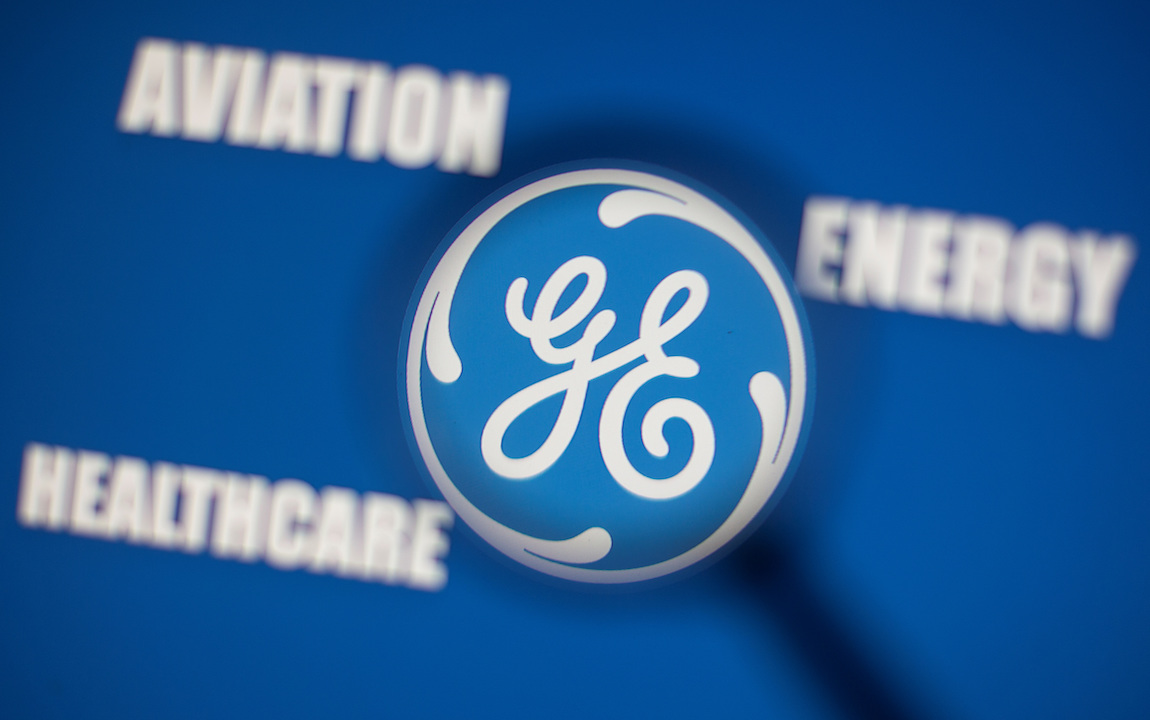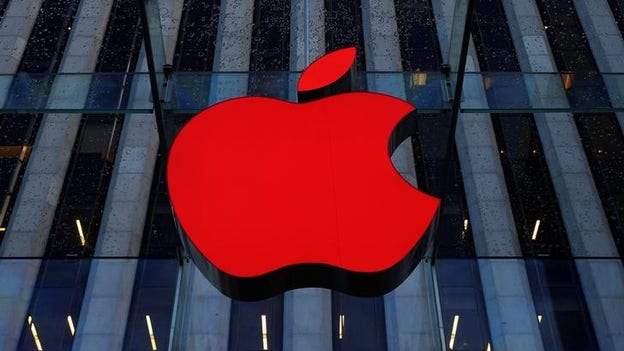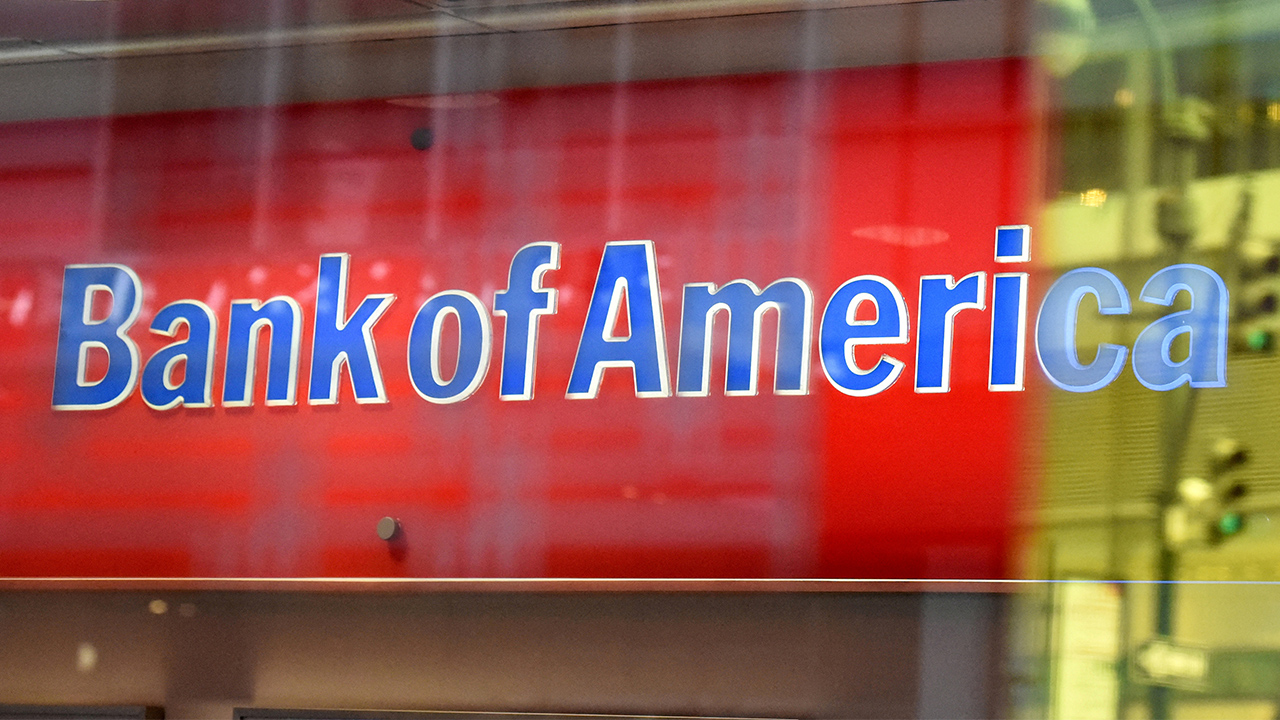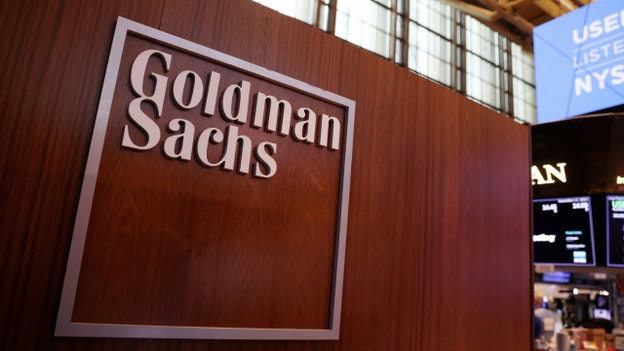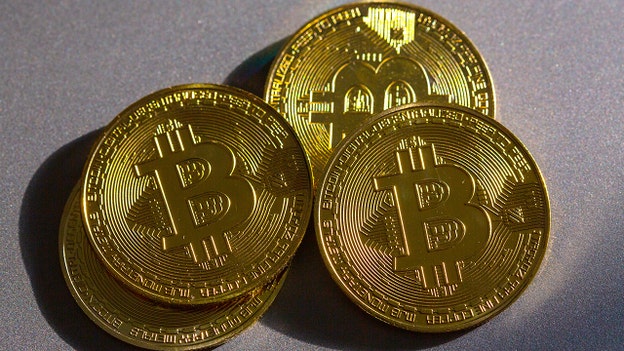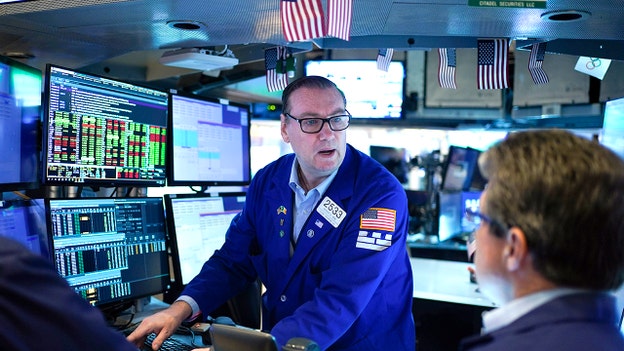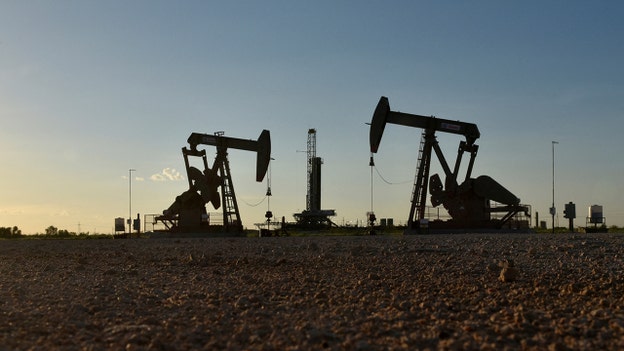STOCK MARKET NEWS: Stocks reverse course, oil tops $102, Apple hiring, spending update
More big-name banks reporting second-quarter earnings. FOX Business is providing real-time updates on the markets, commodities and all the most active stocks on the move.
Coverage for this event has ended.
General Electric's CEO Larry Culp is making big changes at the conglomerate. Here's what's new...
| Symbol | Price | Change | %Change |
|---|---|---|---|
| I:DJI | $31,071.75 | -216.51 | -0.69% |
| SP500 | $3,830.82 | -32.34 | -0.84% |
| I:COMP | $11,360.05 | -92.37 | -0.81% |
U.S. stocks reversed course giving up all gains to close lower across the board as healthcare and utilities weighed on the S&P 500 as the 10-Year Treasury yield closed at 2.959%. Apple also fell on reports it plans to slow hiring and spending. In commodities, oil jumped over 5% to $102.60 per barrel.
Apple may slow hiring and spending plans in anticipation of an economic slowdown, Bloomberg reports.
Bank of America posted a mixed quarter as profits fell compared to the same period a year ago.
Delta jumps after placing an order for 100 planes with Boeing.
Stocks kicked off the week higher helped by a fresh round of bank earnings from Goldman Sachs and Bank of America. Additionally, Boeing jumped after receiving an estimated $13 billion order from Delta. In commodities, oil rose to the $91 per barrel level.
| Symbol | Price | Change | %Change |
|---|---|---|---|
| BA | $147.74 | +0.59 | +0.40% |
| DAL | $30.09 | +0.32 | +1.07% |
| GS | $293.87 | +12.28 | +4.36% |
| BAC | $32.25 | +2.12 | +7.04% |
Revenue at the global markets unit, which houses Goldman's trading desks, jumped 32% to $6.47 billion, with fixed income, commodities and trading revenue surging 55% and equities revenue adding 11%.
This helped the bank offset a hit to the investment banking business due to a plunge in underwriting activity and deals as a risk-averse sentiment gripped global markets.
Cryptocurrency prices for Bitcoin, Ethereum and Dogecoin were modestly higher early Monday morning.
At approximately 4 a.m. ET, Bitcoin was trading at about $22,250 (+6.9%), or higher by more than $1,430.
For the week, Bitcoin was trading lower by 0.13%. For the month, it was trading higher by 1.84%.
Ethereum was trading at approximately $1,460 (+8.38%), or higher by more than $110.
For both the week and month, Ethereum was making significant gains, trading higher by more than 15.3% for the week and nearly 24.3% for the month.
Dogecoin was trading at 0.066158 (+4.5%), or higher by approximately $0.003038. For the week, Dogecoin was lower by nearly 6%. For the month, the crypto was higher by more than 11%.
Jared Bernstein, a member of the White House Council of Economic Advisers, admitted Sunday that inflation is "unacceptably high," while also stressing that President Biden would not back down on climate change spending initiatives and does not see the country as headed toward a recession.
Fox News host Shannon Bream noted that about a year ago to the day, President Biden said that no serious economist thought that the U.S. would enter a period of unchecked inflation.
His remarks came when the U.S. had at 5.4% inflation, while the U.S. is at 9.1% as of this week.
"How did the White House get this so wrong?" Bream asked Bernstein, a guest on "Fox News Sunday."
"Well that actually was the dominant forecast at the time, and we were very much citing forecasts across the board, including those at the Federal Reserve," Bernstein responded, noting "some unforeseen things that occurred," namely the war in Ukraine.
The average price of a gallon of regular gasoline slipped on Monday morning to $4.521, according to AAA.
The price on Sunday was $4.532, while Saturday the price was $4.548.
Gas has been on the decline since hitting a high of $5.016 on June 14. A week ago, the average price of a gallon of gasoline in the U.S. was $4.678.
A month ago, that same gallon of gasoline in the US was $4.989. A year ago, the average price of a gallon of gasoline in the U.S. was $3.168.
Diesel slipped Monday as well to $5.535, after dropping on Sunday to $5.544.
A week ago, a gallon of diesel sold for $5.642. A month ago, diesel was sold for $5.811.
Last year, diesel sold for $3.274, AAA reported.
| Symbol | Price | Change | %Change |
|---|---|---|---|
| I:DJI | $31,288.26 | +658.09 | +2.15% |
| SP500 | $3,863.16 | +72.78 | +1.92% |
| I:COMP | $11,452.42 | +201.24 | +1.79% |
Second-quarter earnings season ramps up this week, with seven of the 30 Dow members, and 71 companies in the S&P 500 (just over 14% of the benchmark index) set to report.
The big banks and financial institutions kicked things off last week, and this week we’ll hear from a great many more, including Bank of America, Goldman Sachs, American Express and Travelers to name a few.
Tesla will kick off the first of the big-cap consumer/tech titans with April-June results on Tuesday, followed by Netflix on Wednesday.
Other high-profile names to watch include AT&T, Lockheed Martin, HCA Healthcare, American Airlines, United Airlines, Ebay and Abbott Labs.
A July survey from the University of Michigan showed that inflation expectations held steady or improved, along with general consumer sentiment. That was welcome news after reports that showed consumer prices remained extremely hot in June, along with wholesale prices for businesses.
The report also bodes well for investors looking for signs that the Federal Reserve might eventually ease off its aggressive policy to fight inflation.
The S&P 500 rose 1.9% to 3,863.16. Friday, snapping a five-day losing streak. The Dow Jones Industrial Average rose 2.1% to 31,288.26 and the Nasdaq gained 1.8% to 11,452.42 on Friday.
Smaller company stocks outpaced the broader market, sending the Russell 2000 index 2.2% higher, to 1,744.37.
Meanwhile, markets in Japan were closed Monday for a holiday, but elsewhere in Asia shares were higher.
Hong Kong's Hang Seng index surged 1% to 20,507.34, while the Shanghai Composite index gained 0.7% to 3,251.54.
In Seoul, the Kospi jumped 1.4% to 2,363.36. Australia's S&P/ASX 500 added 0.5% to 6,637.50.
New Zealand shares edged higher even after the government reported that inflation hit a 32-year high of 7.3% in the April-June quarter. It was 6.9% in the previous quarter.
Oil prices extended gains early Monday morning, propped up by a weaker dollar and tight supplies that offset concerns about recession and the prospect of widespread COVID-19 lockdowns in China again reducing fuel demand.
Brent crude futures for September settlement rose $2.54, or 2.5%, to $103.70 a barrel by 0648 GMT, after a 2.1% gain on Friday.
U.S. West Texas Intermediate (WTI) crude futures for August delivery gained $2.31, or 2.4%, to $99.90 a barrel, after climbing 1.9% in the previous session.
Last week, Brent and WTI posted their biggest weekly drops in about a month on fears of a recession that will hit oil demand.
Mass COVID testing exercises continued in parts of China this week, raising oil demand concerns at the world's second-largest oil consumer. However, oil supplies remained tight, supporting prices.
As expected, U.S. President Joe Biden's trip to Saudi Arabia failed to yield any pledge from the top OPEC producer to boost oil supply. Biden wants Gulf oil producers to step up output to help tame oil prices and drive down inflation.
Live Coverage begins here
